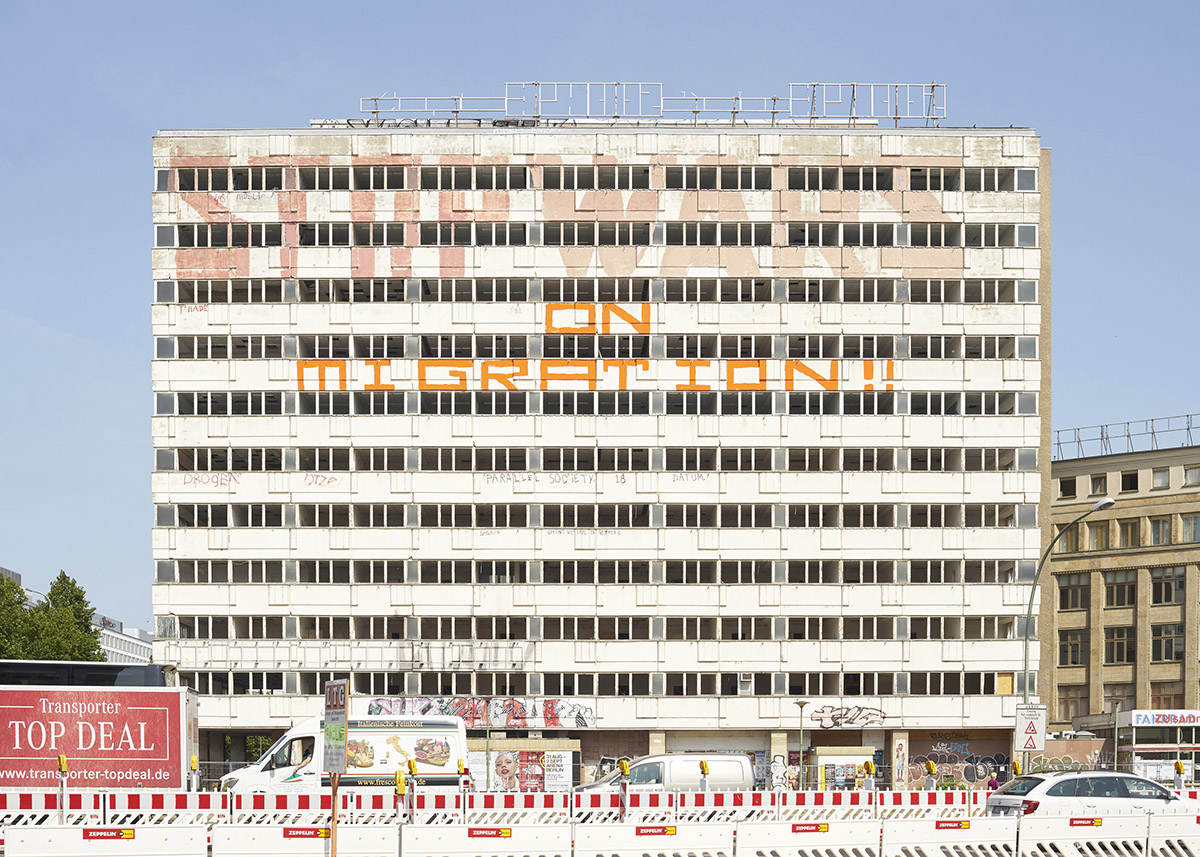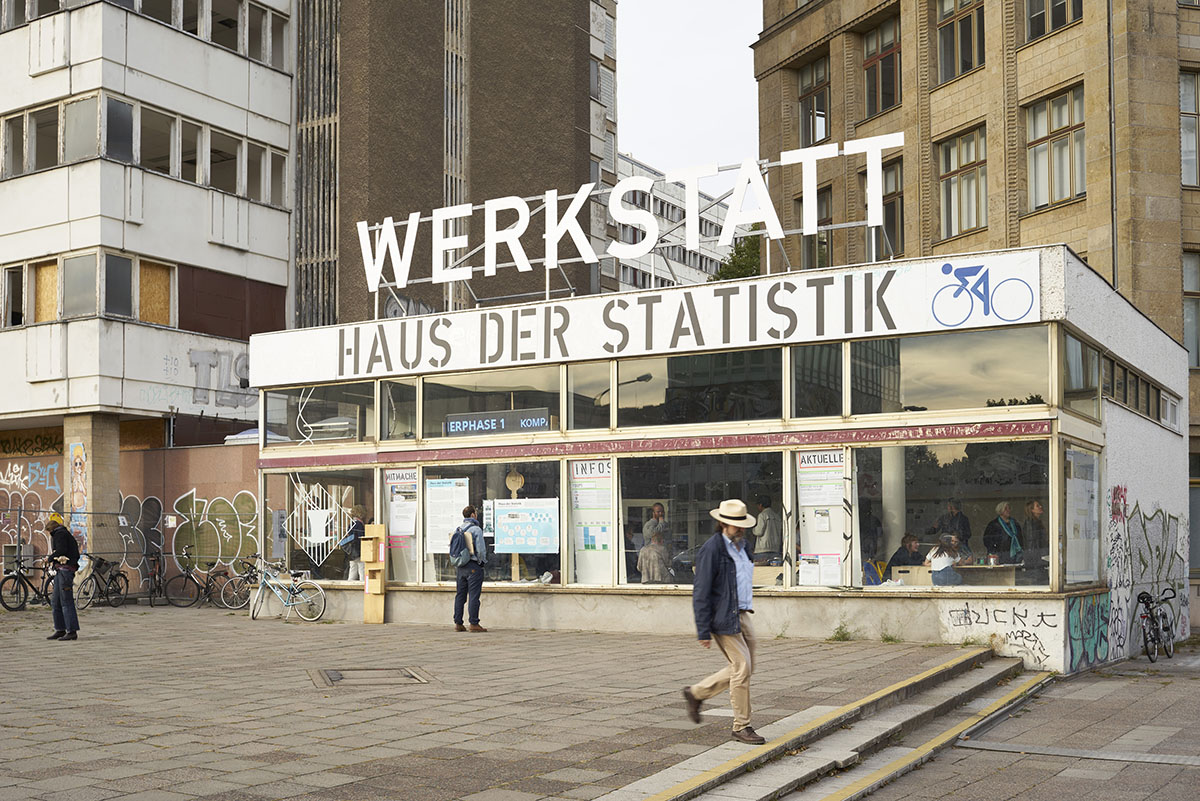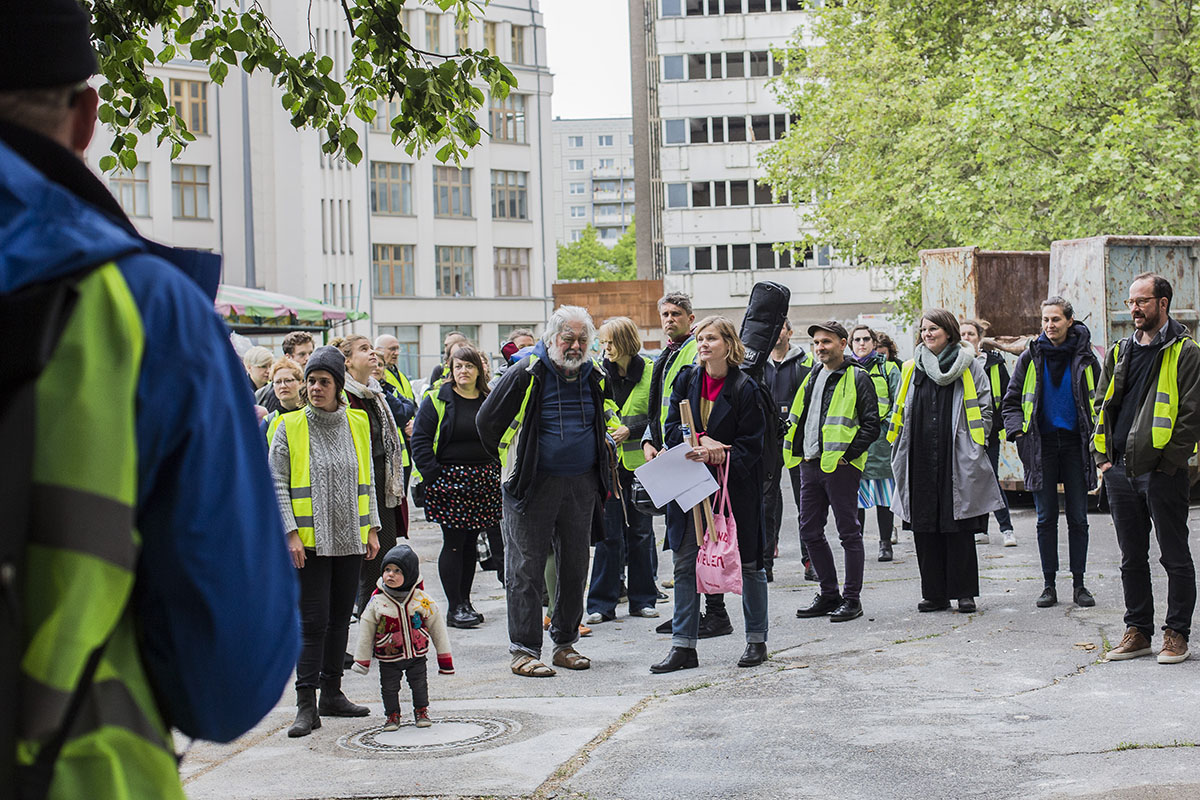Submitted by WA Contents
Different types of collaborations make the ways of urban regeneration more open, says Leona Lynen
Czech Republic Architecture News - Jun 18, 2020 - 09:58 4361 views

reSITE, a global non-profit organization and event to improve the urban environment, has released the lecture of Leona Lynen from its 2019 REGENERATE Conference, which was held from 19-20 September 2019 in Prague's Forum Karlin.
Leona Lynen, a Berlin-based urbanist and a member of ZUsammenKUNFT, a cooperative for urban development, advocating for cooperation between civil society and administration in order to co-create a different quality of the city.

Image © Victoria Tomaschko
Lynen is behind a major urban regeneration project, "Haus der Statistik" building in Berlin, which is a vast, unoccupied administration building found in the heart of Berlin’s Alexanderplatz.
In a 15-minute video, Lynen explains how ZUsammenKUNFT, the five stakeholders and the community transformed the building into a model project for a co-operative, mixed-use urban development that is oriented towards the common good.
According to Lynen, working with different types of collaborations makes the ways of urban regeneration more open and diverse.
"I think we truly do compliment and amplify each others’ strengths and amplify also each others’ tactics," says Lynen in her lecture.
"And I think if we enter to these collaborations, we can make way for open, alive, diverse and incomplete cities."
"With the city of Berlin selling out more public property, the most vulnerable groups of Berliners are being pushed outside the inner city, endangering the influence the city's creative culture that gives the city its identity," explians Lynen in her lecture.
"A prototypical concept of turning an unoccupied former administrative complex in the heart of Berlin into mixed-use, affordable housing is raising the bar for how we regenerate neighborhoods in ways that are equitable, sustainable and accessible to the local community."
"The project is coming to life through a collective effort of public actors and civic activists, and serves as a pilot project for how other cities can regenerate with their local communities in mind."

Leona Lynen at the 2019 reSITE stage. Image © Tomas Princ
Leona Lynen is a Berlin-based city-maker who advocates cooperation between civil society and administration in order to jointly create a different quality of city.
Having studied South Asian Studies, Economics and Urban Planning in Heidelberg, Delhi and at the London School of Economics, Leona is an expert when it comes to mediating between different people, disciplines and interests.
Leona has worked in Berlin and across continents as project lead, researcher and curator for several Goethe-Institutes, urban think tanks and the Federal Institute for Spatial Development.

Haus der Statistik Alexanderplatz. Image © Ute Zscharnt
"I think the juxtaposition of five partners, they have different interests but also different tactics that really provide of platform to test out of eternative ways of urban regeneration," Lynen continues.
"Of course, this kind of collaboration is not always easy, it also shouldn’t be because cities are not easy."
"However it is a learning process, each and every partner is open to it. But even the administration understands that they need to leave the traditional past of urban regeneration in order to make this model project work."

Werkstatt Haus der Statistik. Image © Nils Koenning
"A multi-track urban design process that went over for six months. It is a combination of different procedures and stakeholders that would usually not work together," she explains.
"A very crucial for us was also to open up an on-site office, we have opened up a former derelict bicycle store that is just next to "Haus der Statistik" and to a workshop space where we had many formats of involvement."
"I just want to amplify here that the new building block is really open to appropriation, it reflects the diversity of the uses and it is accessible to the neighboring residential area."
"I think if we want to regenerate our cities, we need to enter new collaborations that might be uncomfortable at first, we need to have an empty phase of centralized urban regeneration by the so called experts and include people that have a say in the everyday environment."
Leona Lynen is a project manager at ZUsammenKUNFT Berlin – cooperative for urban development. Leona has worked in Berlin and across continents as project lead, researcher and curator for several Goethe- Institutes, urban think tanks and the Federal Institute for Spatial Development.
Leona’s work has found expression in numerous publications, exhibitions, lectures and the everyday urban fabric.

Image © Victoria Tomaschko
reSITE is a global non-profit organization and acts to improve the urban environment, both on the stage at our events, and off. The organization works at the intersection of architecture, urbanism, politics, culture, and economics, acting as a catalyst for social action and innovative leadership.
The organization encourages the exchange of ideas about making cities more livable, competitive, resilient, inclusive, mobile and designed with humans in mind to protect and public space, architecture, and sustainable development in cities.
reSITE's main event is held annually in Prague in September, it previously held flagship events in Lisbon and Berlin. reSITE was founded by landscape architect Martin Barry in 2011.
WAC will be releasing one lecture from the reSITE 2019 annual conference each week. Watch previous lectures on WAC's Czech Republic Country page.
Top image: Leona Lynen © Tomas Princ
> via reSITE
